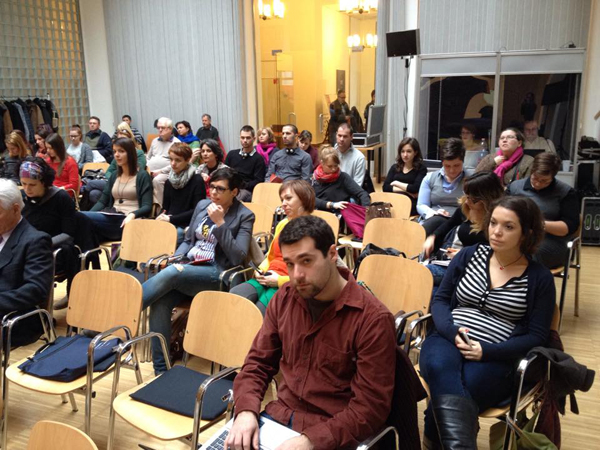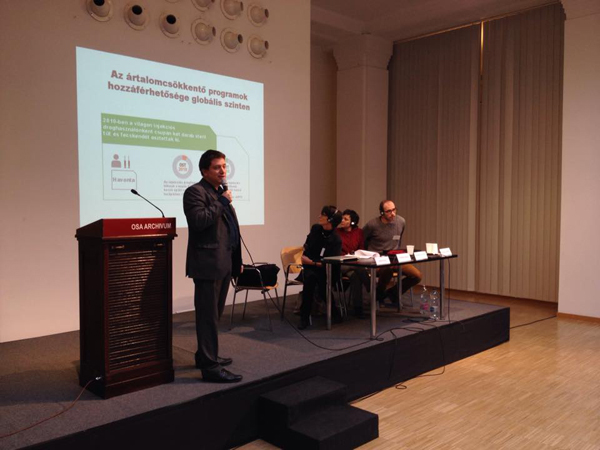At the national harm reduction conference in Budapest, presenters from Greece, Romania and Hungary reported that there are similar problems and challenges in relation to injecting drug use in Southern-Central Europe, but there are huge differences between government responses. Lack of political leadership is leading to growing HIV and hepatitis C infections among drug users all over the region.
The opening speech pointed out that there is a global funding crisis within harm reduction: the UN estimates that 2.3 billion USD are needed to fund HIV prevention programs among injecting drug users, but only 160 million USD are actually being spent. International donors are retreating from middle-income countries, where most IDUs live, and national governments are not providing adequate funding for harm reduction programs. The consequences are obvious: life-saving services are being shut down, access to existing services is restricted, and the risk of blood-born infections is growing.

Text: Peter Sarosi
Videos: Istvan Gabor Takacs




